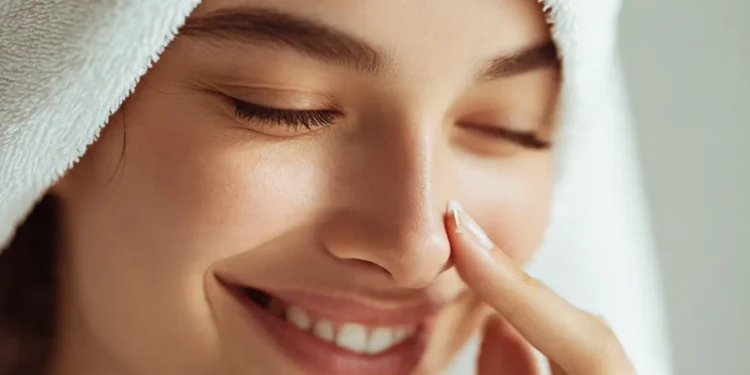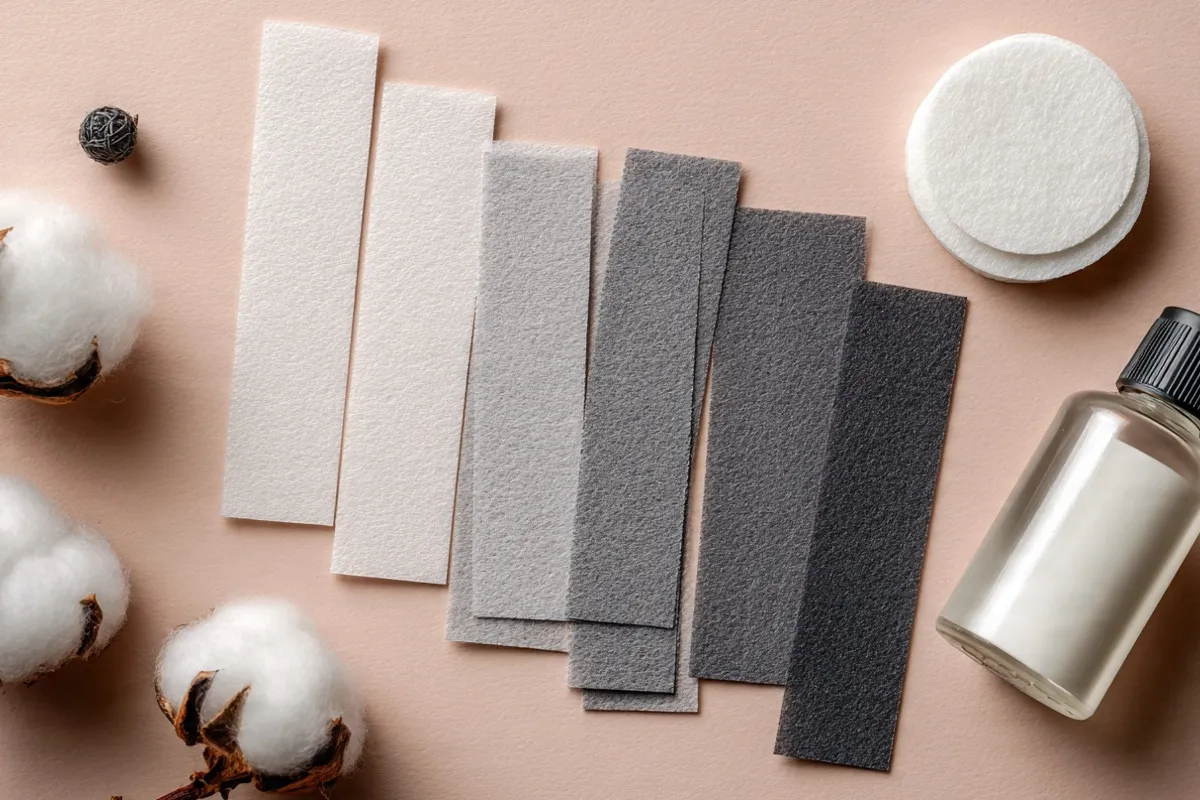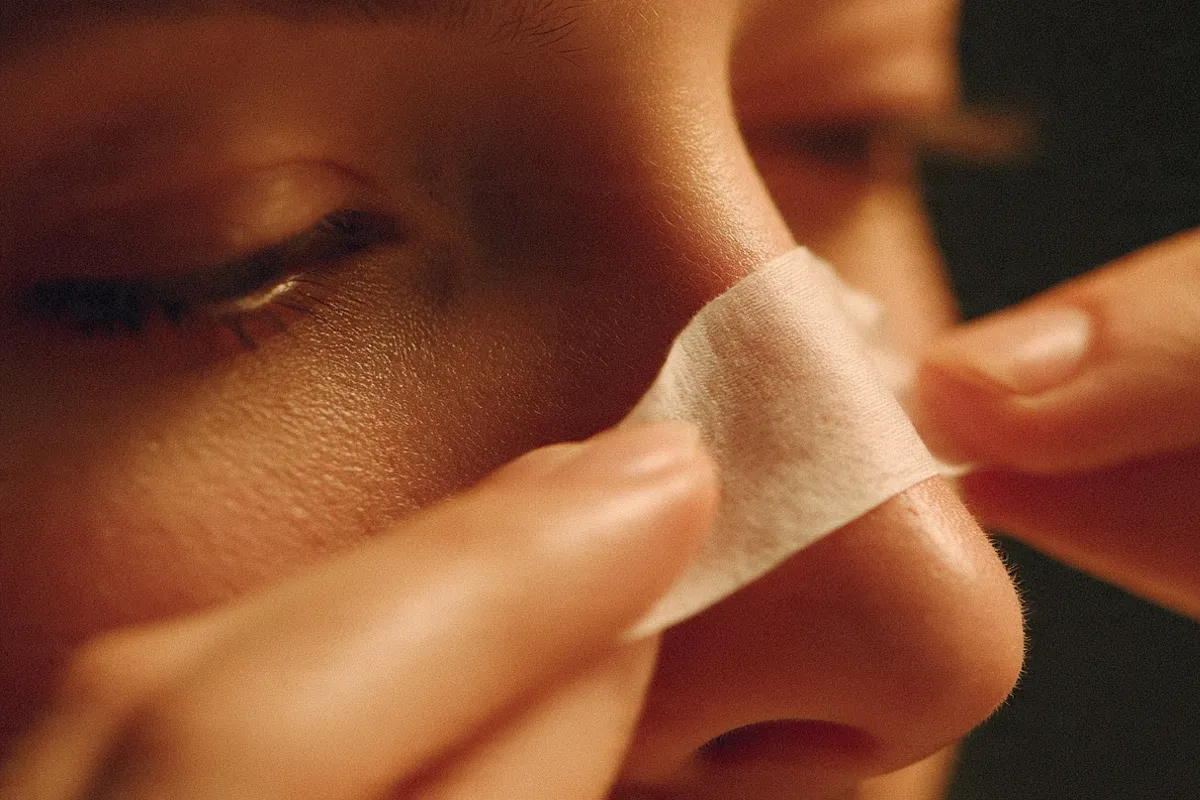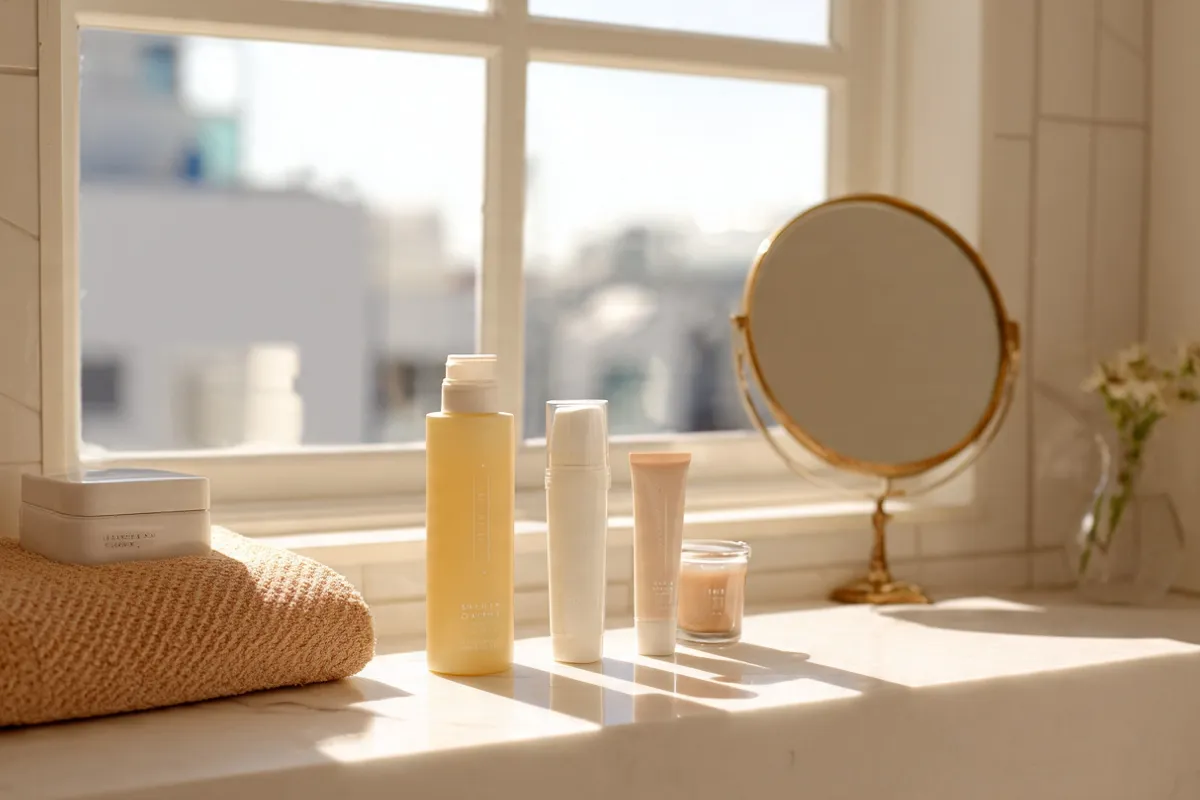Unlocking Smoother Skin in Minutes
Are blackheads and clogged pores causing frustration every time you look in the mirror? Nose strips have become a go-to skincare solution for millions seeking an instant, visible improvement. These simple yet effective skincare tools are easy to use, affordable, and deliver quick results, making them a favorite for everyone—from teens to adults.
But do nose strips really work? Are they safe for regular use? What’s the science behind their popularity? And how can you use them to get the best results without compromising your skin’s health? In this in-depth guide, you’ll find comprehensive, up-to-date insights on:
-
How nose strips work and their effectiveness for blackhead removal
-
Types of nose strips and which are best for different skin types
-
Best practices and dermatologist-backed usage tips for maximum benefit
-
Pros and cons, including myths vs. reality
-
Recent technologies and trends in pore cleansing
-
Practical tips, case studies, and safety precautions
-
An authoritative FAQ answering the most common skincare questions
Let’s dive in to refresh your skincare routine and reveal your smoothest, most radiant nose yet!
What Are Nose Strips? (Definition, Overview, and History)
Nose strips — also known as pore strips — are adhesive strips specifically designed to clear blackheads, whiteheads, dirt, oil, and impurities from pores, predominantly on the nose. Developed in the 1990s, they gained massive popularity for their easy, mess-free application and gratifying peel-off results.
How Do Nose Strips Work?
Nose strips use a simple, but effective, mechanism:
-
Adhesion: The strip bonds securely to the skin when wet.
-
Extraction: As the strip dries, it hardens and grips to debris on the skin’s surface and inside the pores.
-
Removal: When peeled off, the strip lifts away blackheads, excess sebum, dead skin cells, and pollutants, leaving pores visibly clearer.
Primary ingredients usually include:
-
Polyquaternium, polyvinyl alcohol (adhesion)
-
Activated charcoal (deep pore cleansing)
-
Salicylic acid, witch hazel, or tea tree oil (antibacterial, anti-inflammatory, or exfoliating)
Fun Fact: More than 70% of first-time users see visible debris on the strip after just one use.
Why Are Pore Strips So Popular? (2026 Market Stats & Trends)
Instant Gratification in the Skincare Industry
In 2025, the global nose and pore strip market is booming. Estimated at over USD 1.5 billion in annual sales with projections to grow toward USD 2.4 billion by 2032, these products are especially popular among Gen Z and millennials for their convenience and affordability.
Key Trends:
-
Tech-Enhanced Products: Modern pore strips now feature upgraded adhesives, pore-refining botanicals, and eco-friendly materials.
-
Holistic Skincare: Consumers today look for strips embedded with natural ingredients (like aloe vera, green tea, or hyaluronic acid) for added skin nourishment.
-
Integrated Self-Care: Nose strips are no longer just for blackhead removal but are part of a weekly or bi-weekly skincare ritual emphasizing wellness, confidence, and self-love.
Types of Nose Strips: Which One’s Right for You?
Choosing the right nose strip can make a big difference in your results! Let’s review the most popular options:
1. Charcoal Nose Strips
Best for: Oily, acne-prone, and combination skin
-
How it works: Activated charcoal “magnetizes” oil, toxins, and debris, making removal more effective.
-
Added benefits: Absorbs excess sebum and reduces future blackhead formation.
2. Salicylic Acid Infused Strips
Best for: Persistent blackheads, mild acne
-
How it works: Salicylic acid (BHA) penetrates oil, exfoliates inside pores, and prevents new breakouts.
-
Note: Best for non-sensitive skin, as BHA can be drying if overused.
3. Tea Tree Oil Strips
Best for: Sensitive or redness-prone skin
-
How it works: Tea tree oil is a natural antibacterial that soothes and calms inflammation, making these strips gentle but effective.
4. Hydrating/Soothing Strips
Best for: Dry, dehydrated, or mature skin
-
Common ingredients: Aloe vera, hyaluronic acid, chamomile extract.
-
Why choose them: Cleanses without over drying, leaving skin soft and refreshed.
5. Advanced and Eco-Friendly Options
-
Bamboo fiber or biodegradable options: Better for the planet, reduce plastic waste.
Tip: Test a small patch before full use, especially if you have sensitive or allergy-prone skin.
How to Use Nose Strips Effectively: A Step-by-Step Guide
Correct application is critical for maximum benefit and minimal irritation. Follow this expert-backed process:
-
Cleanse Your Face Thoroughly
Remove all makeup, dirt, and oil using a mild cleanser. -
Steam or Warm Your Face (Optional, for stubborn blackheads)
Open up pores by holding your face over a bowl of warm water or using a warm towel for 3–5 minutes. -
Wet Your Nose Generously
The strip only sticks to damp—not dry—skin. Use lukewarm water for best adhesion. -
Apply the Strip Smoothly
Position and press the strip firmly along your nose’s contours to avoid gaps or bubbles. -
Wait 10–15 Minutes
Stay still! Let the strip dry completely; it should become stiff to the touch. -
Peel Off Slowly from Edges
Start at the outer edges, pulling toward the center. -
Follow Up with Pore-Care
Rinse leftover residue, then use a gentle toner and light moisturizer. Consider an ice roller or cold compress to close pores faster.
Best Practices & Tips:
-
Don’t overuse: Limit to once a week unless specified.
-
Avoid use on sunburned, irritated, or broken skin.
-
If you have rosacea or extremely sensitive skin, consult a dermatologist.
Are Nose Strips Actually Effective? (Myth Busting & Science)
Proven Benefits
-
Instantly removes visible blackheads and excess oil
-
Minimally invasive: No squeezer tools or harsh extraction needed
-
Affordable and accessible: Widely available in stores and online
-
Good for events: Quick fix before special occasions for smoother makeup application
Scientific Evidence
Clinical studies confirm that nose strips do remove surface debris and blackheads, improving the appearance of pores and providing smoother skin for several days. However, strips do not shrink pore size permanently or prevent new blackheads from forming indefinitely.
Fact: Consistent use, alongside good skincare, can help reduce future clogging but is not a “cure all” for chronic blackheads.
Potential Risks and Drawbacks
Like all skincare products, nose strips are not perfect for everyone. Be aware of:
-
Temporary Redness or Irritation: Especially if the strip is left on too long or removed aggressively.
-
Not Suitable for All Skin Types: People with eczema, rosacea, or highly sensitive skin should avoid or limit use.
-
Open Pores Post-Use: Freshly cleansed pores are more vulnerable to dirt; apply strips at night and always follow with a toner/moisturizer.
-
No Deep Pore Fix: Strips remove surface debris, but may not “pull out” the deepest, most stubborn blackheads or “closed comedowns.”
Do’s and Don’ts of Nose Strip Use
| Do | Don’t |
|---|---|
| Cleanse and wet nose thoroughly | Use on sunburned, irritated, or broken skin |
| Follow time guidelines exactly (10-15 min) | Exceed recommended usage frequency |
| Peel off gently from the edges | Rip off quickly or harshly |
| Moisturize and tone afterward | Skip after-care |
| Read label/instructions for each product | Assume all strips work for all skin types |
Modern Alternatives: Tech, Ingredients & Trends
-
Ultrasonic Blackhead Removers: Small, hand-held devices using sonic vibrations for at-home pore cleansing.
-
Pore Vacuums: Growing in popularity in 2025; utilize suction to clear pores. Suitable for some but may cause bruising if overused.
-
Natural & DIY Masks: Clay, charcoal, and bentonite masks target pore congestion with minimal irritation.
-
Gentle Chemical Exfoliation: Products featuring alpha- and beta-hydroxy acids (AHA/BHA) help keep pores clear long-term.
2026 Trend Alert: Connected/smart nose strips that track pore condition and recommend routine adjustments are emerging, especially in Asia and the US.
Real-World Example: Case Study
Emma’s Pore Transformation Journey
Emma, 22, struggled with recurring nose blackheads and visible pores despite diligent cleansing. After consulting a dermatologist, she added weekly charcoal nose strips to her routine, combined with a salicylic acid toner and hydrating moisturizer.
Results after 6 weeks:
-
80% reduction in visible blackheads
-
Skin feels smoother and looks brighter
-
No major irritation thanks to proper technique and post-care
Emma’s story highlights the importance of combining strips with holistic skincare for best results.
Common Questions: Nose Strip FAQ
1. Do nose strips really remove blackheads?
Yes, nose strips effectively remove surface-level blackheads and dirt by adhering to impurities and pulling them out when peeled off. However, they may not fully remove deep-seated blackheads or prevent new ones from forming.
2. How often should nose strips be used?
Most dermatologists recommend once a week or every 10 days—overuse can cause dryness or irritation.
3. Are nose strips safe for sensitive skin?
Generally, yes, if used as directed. However, those with very sensitive skin, rosacea, or eczema should consult a dermatologist and use with caution.
4. Can pore strips make pores smaller?
No. While they make pores look smaller by removing debris, the effect is temporary. Only consistent care and sunscreen protect against enlarged pores.
5. What should you do after using a nose strip?
Rinse off any residue, apply a gentle toner to close pores, and follow with a moisturizer to keep skin hydrated.
6. What’s more effective: nose strips or pore vacuums?
Nose strips are gentler and easier for regular upkeep while vacuums may deeper-clean but carry a higher risk of irritation or bruising if used improperly.
7. Are there eco-friendly or cruelty-free options?
Yes! Many brands now offer strips made with biodegradable materials, without animal testing or harsh chemicals. Read labels for certifications.
Powerful Tips for Maximum Results
-
Apply strips at night rather than morning to prevent environmental debris entering open pores.
-
Combine strips with exfoliating masks or gentle AHA/BHA treatments for deeper pore maintenance.
-
Switch to strips with soothing botanicals if you notice irritation or redness.
-
Always read the label and follow specific instructions unique to each brand and formula.
-
Don’t expect miracle cures—strips are best as part of a broader skincare routine for clean, smooth skin.
Should You Add Nose Strips to Your Skincare Routine?
Nose strips are a quick and effective tool for visibly clearer, smoother skin. Ideal for special occasions, self-care nights, or whenever you need an instant refresh, they’re simple, safe for most, and budget-friendly. While not a permanent solution for blackheads, they play a valuable role in modern skincare.
Take your first step today toward smoother, more confident skin—try a quality nose strip and elevate your skincare game!
Ready to upgrade your routine? Explore our recommended nose strips for every skin type and start seeing real results—because everyone deserves to feel confident in their skin.
References:
- https://www.linkedin.com/pulse/nasal-strips-real-world-5-uses-youll-actually-see-zg1ee
- https://www.archivemarketresearch.com/reports/pore-cleanser-242397
- https://dataintelo.com/report/pore-cleansing-product-market


















